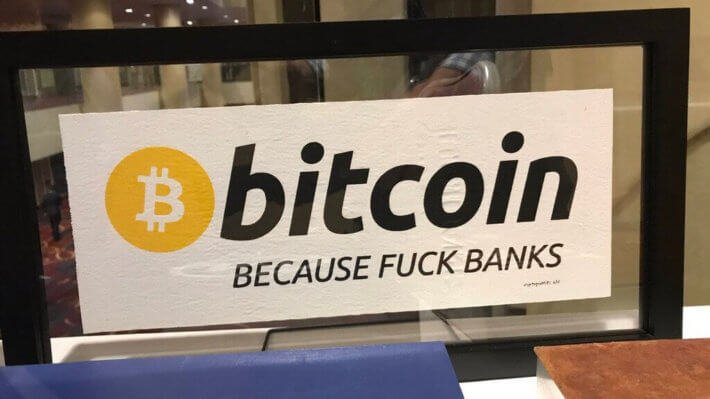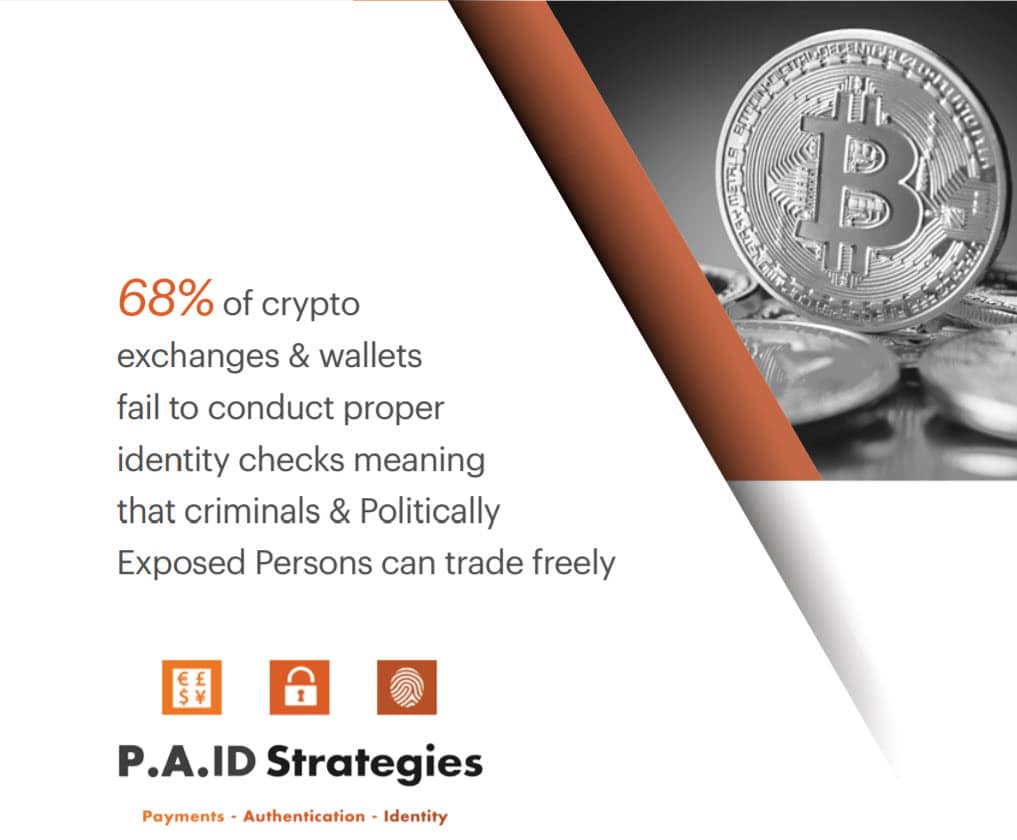
2018-12-24 03:30 |
Last year, crypto KYC and AML requirements came bursting onto the scene with thunderous applause and approbation. Many traders felt like the ICO sector was rife with scammers and con artists. In this sense, they believed there would be redemption through government. The scammers and hucksters would go to prison for defrauding investors and all would be well. After all, many people believed government regulations were necessary to curb people’s appetite for ethereum-based shitcoins. “All financial markets need regulations!” was their lodestone.
Also read: Chatter Report: Antonopoulos Criticizes KYC, Kasireddy Claims Decentralization Not Always Better
Letting Go of the Crypto-Anarchist DreamThe emergence of more government into the cryptocurrency space reflected a sentiment antithetical to the crypto-anarchist dream. This is the dream of being financially independent and removed from the state apparatus. Bitcoin emerged on the heels of the 2007 and 2008 financial collapse as a way to stop onerous regulations and crush the banking elite under the weight of financial sovereignty. And yet many players in the cryptocurrency ecosystem seem to have forgotten the purpose of Bitcoin’s evolution.
As a reminder, there are three powerful reasons why the cryptocurrency industry as a whole should reject KYC and AML regulations and the governments that issue them. These are the same reasons why the industry should not uphold the broken, parasitical system that has caused the suffering of millions.
Regulations Are Threats of ViolenceRight out of the gate, a regulation is a de facto threat of violence. When a government issues any kind of regulation, they are effectively saying, “Do what we want or we will put you in jail or kill you.” A lot of people try to avoid or dance around this truth. They say regulations protect consumers, investors and businesses
However, these threats of violence do not protect anyone. KYC and AML regulations are the most obvious examples. When government forces people to comply with “know your customer” regulations, they force people to provide personal, sensitive information. They are likewise coercing financial institutions into demanding this information from their customers. It creates a predatory, unnatural environment.
In a free market, companies would not issue these threats or they would simply lose business. It’s economically insane. Government is thus an artificial player in the market that also harms people via its regulatory requirements. Governments create misaligned incentives. In this regard, regulations are a miasma pervading the financial life of humankind. What is worse is these coercive regulations also have serious collateral consequences.
Regulations Cause Financial ExclusionThe most talked about consequence of regulation is the financial exclusion it promotes. There are millions of unbanked people across the world. These people do not have access to financial institutions or a way to adopt electronic banking. This is primarily due to KYC and AML requirements. If people do not have the proper documentation and identifying materials, there is no way they can adopt modern financial services. This makes the industry a walled garden of fascist-like control that only accepts witting participants from first world countries.
The system effectively removes people living in sub-Saharan Africa, Venezuela, the Middle East, and other technologically bereft places from the equation. This is what happens when compliance trumps the need to modernize isolated locales across the globe. An article titled “There’s a Bigger Scam Than Anything in Crypto, It’s Called KYC/AML,” further explores this issue:
An entire country, Somalia, began to starve because U.K. banks decided it was not worth the bother to bank remittance services. Forty percent of the country’s population relied on these remittances – people sending their hard-earned savings home to feed their families. The U.K. banks’ excuse: payments to Somalia were “high-risk,” a euphemism for not worth the compliance cost of dealing with people with poor documentation. Invariably, those who pay the highest cost are society’s weakest.
Hackers Prey on Data HoneypotsKYC and AML regulations also bring out the hackers and opportunists. If government forces a company to adopt KYC, they naturally store customer data on a centralized server. This unwise play creates an attractive honey pot for thieves on the dark web. A Daily Hodl article elaborated:
“According to Reddit user Gamm86, a hacker can circumvent the 2FA by posing as a user who lost their 2FA access (which can happen to anyone who loses a phone). The crypto exchange will then ask for proof of identity from the user, which the hacker can access via the dark web. Once a hacker sends in the requested documents, the exchange either resets or removes the 2FA codes. The hacker can then gain access and effectively drain a crypto account.”
In the absence of KYC regulations, the industry would not have to worry about this kind of collateral damage. Unfortunately, this is what happens when people who do not understand the industry get involved with “regulating” it. They create scenarios that make market actors vulnerable to malevolent forces.
A Return to Crypto-Anarchy: Self-GovernanceThe crypto community should work to mitigate government regulation. It is factual and clear that government mandates are acts that harm individuals as well as whole communities. A regulation is just scribbling on a sheet of paper that doubles as a thinly-veiled threat of violence, causing a cascade of harm to befall the ecosystem.
The solution is to embrace a state of crypto-anarchism. This means all the iconoclasts, entrepreneurs, developers, and philosophers in the space should work to produce more freedom and educate neophytes about the purpose of the tech. There is a seductive element of government regulation mixed with ample pressure, but the reality is self-government — or free market solutions — is more effective. It reduces coercion and violence, and creates natural remedies to any seemingly intractable problem.
The last thing the ecosystem needs is for AML and KYC regulations to grow so unwieldy and confusing that it induces corporate fascism and regulatory capture through an extensive and confusing array of impossible rules no one can navigate. Crypto-anarchy is the only answer to the Gordian knot of statist politicking.
Do you support KYC and AML? Or are regulations naturally bad? What are market alternatives to government-mandated regulations?
Images courtesy of Shutterstock
OP-ed disclaimer: This is an Op-ed article. The opinions expressed in this article are the author’s own. Bitcoin.com does not endorse nor support views, opinions or conclusions drawn in this post. Bitcoin.com is not responsible for or liable for any content, accuracy or quality within the Op-ed article. Readers should do their own due diligence before taking any actions related to the content. Bitcoin.com is not responsible, directly or indirectly, for any damage or loss caused or alleged to be caused by or in connection with the use of or reliance on any information in this Op-ed article.
The post Following the Crypto-Anarchist Dream: 3 Reasons to Reject KYC and AML appeared first on Bitcoin News.
origin »Bitcoin price in Telegram @btc_price_every_hour
AML Bitcoin (ABTC) на Currencies.ru
|
|




















